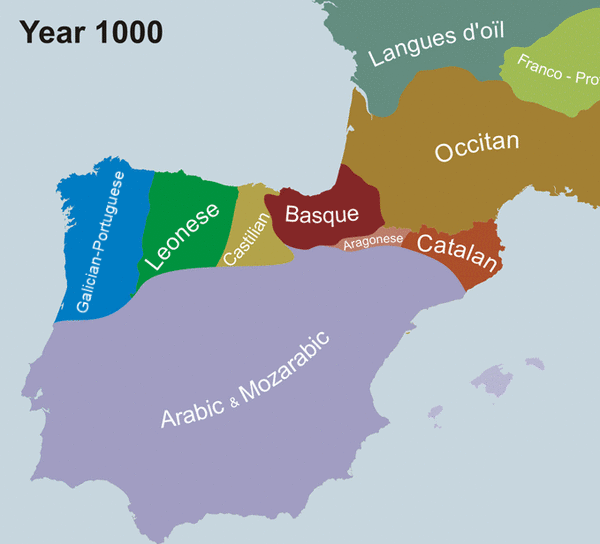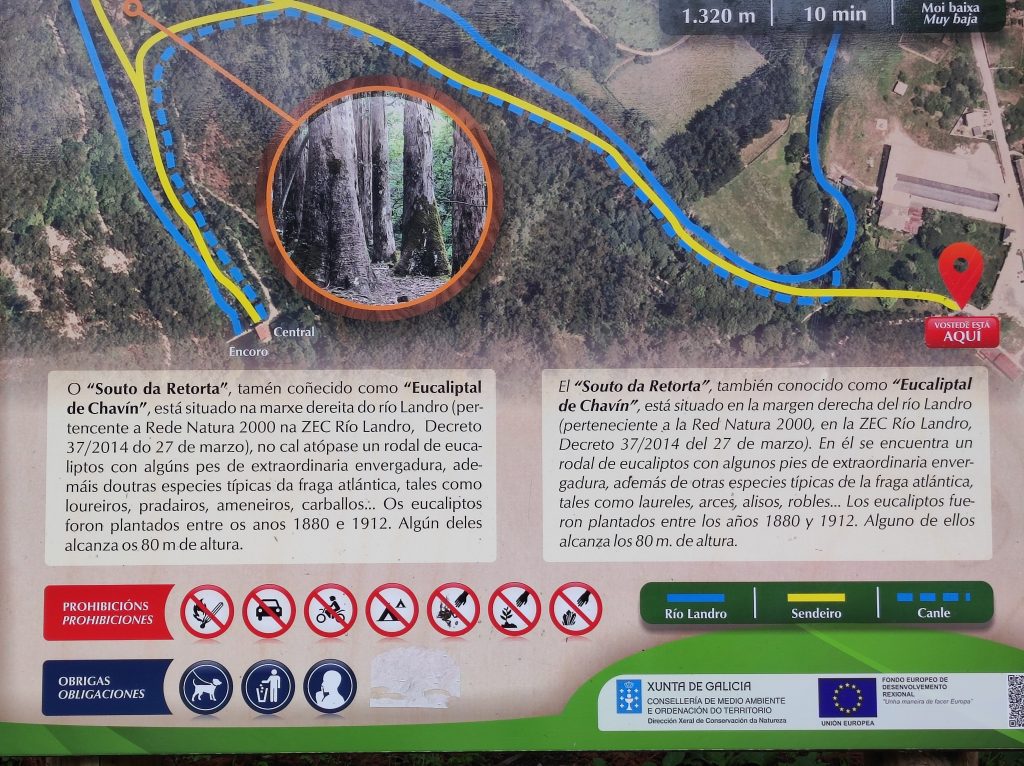Ola e benvido!
Are you curious about the differences between Spanish and Galician? Maybe you’re planning a trip to Galicia and want to brush up on the local language. Or perhaps you’re just interested in learning more about the linguistic diversity of the Iberian Peninsula.
Whatever the reason, you’ve come to the right place! In this blog post, we’re going to explore the key differences between Spanish and Galego.
Before we start, in answer to the question in the title, all three are spoken in Galicia – they are the same thing! Galician is known as Galego by native speakers in Galicia and as Gallego by Spanish speakers.
Introducing Galego
But first, let’s set the scene. Picture rolling green hills dotted with quaint villages, rugged coastlines lashed by the Atlantic Ocean, and a proud and fiercely independent people with a rich cultural heritage. This is Galicia, an autonomous community in northwestern Spain that is home to over 2.7 million people, of which around 70% speak Galego.
Galicia has its own unique language, Galician (or Galego in the local spelling), which is closely related to Portuguese and has its roots in the medieval Kingdom of Galicia. While Spanish is the official language of the region, many Galicians are proud to speak and promote their native tongue.

So grab a cup of café con leche or unha queimada (a traditional Galician drink made from aguardente and herbs), and let’s dive into the fascinating world of Spanish and Galician!
Difference Between Spanish and Galego
If you already know a little Spanish and wonder if you will get by in Galicia – the answer is yes! While Galego is widely spoken, most people will understand Spanish. If you are a Spanish speaker, you may wonder about the key differences. In many cases you will be able to infer the meaning of a word in Galego a the spelling or sound is similar to Spanish, for example ‘playa’ in Spanish is ‘praia’ in Galego.

When it comes to the key differences between Spanish and Galician/Galego, the most obvious is the sound of the language. Galician has a distinct Celtic influence, with a softer and more melodic tone than Spanish. It also has its own unique set of grammar rules and vocabulary, which can take some time to get used to.
One of the easiest ways to get started with Galician is to learn a few key phrases and words that are commonly used in the region. Here are some of the most useful ones:
- Ola: Hello
- Adeus: Goodbye (although chao is a commonly used informal way to say goodbye)
- Bos días: Good morning
- Boas tardes: Good afternoon
- Boas noites: Good evening/night
- Grazas: Thank you
- Por favor: Please
- Si: Yes
- Non: No
Learning just a few words of Galician can go a long way in making a connection with the locals. Galicians are incredibly proud of their language and culture, and showing an interest in both is sure to warm their hearts.
In fact, speaking even just a little bit of Galician can make a huge difference in your interactions with the locals. Galicians are known for their warmth and hospitality, and taking the time to learn their language is a great way to show that you respect and appreciate their culture.
Tips for Speaking and Understanding Galego
Here are a few more insights into the Galician language that might come in handy:
- Spelling: As I mentioned earlier, Galician is spelled “Galego” in the local language, but you might also see it spelled “Gallego” in Spanish. While the two spellings refer to the same language, it’s worth noting that “Galego” is the preferred term among Galicians themselves.
- Pronunciation: Like many languages, Galician has its own set of sounds and pronunciation rules that can take some getting used to. One of the biggest differences from Spanish is the use of the “ñ” sound, which is not present in Galician. Instead, Galician uses a combination of “nh” and “ñ” sounds to represent different sounds.
- Grammar: Galician has its own set of grammar rules that differ from Spanish in some key ways. For example, Galician has a more complex system of verb conjugations that can be challenging for new learners.
However, learning even just a little bit of Galician can be a great way to connect with the locals and gain a deeper appreciation for the rich culture and history of Galicia. So why not give it a try on your next visit? Who knows, you might just surprise yourself with how quickly you pick it up!

